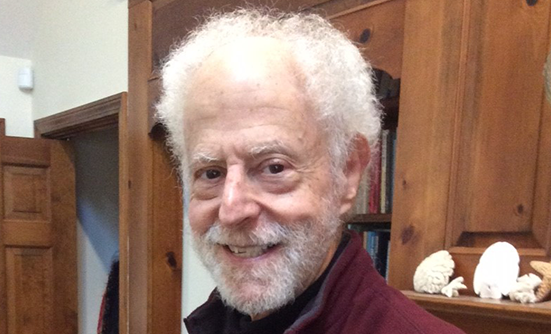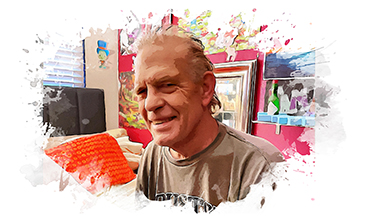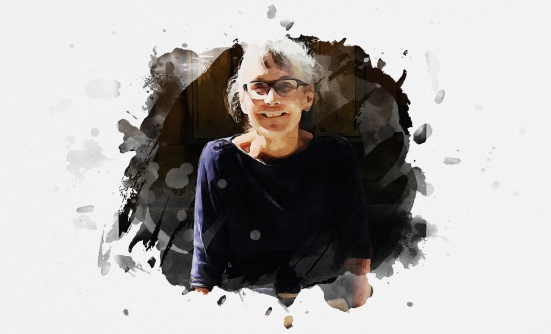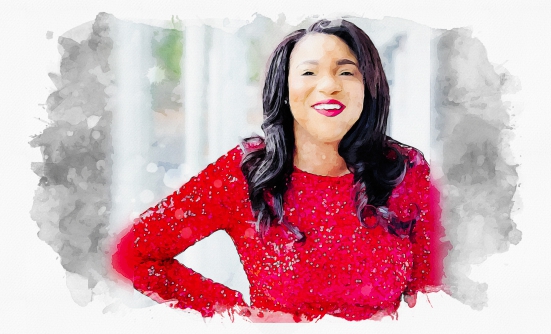The moment of truth had arrived. After several weeks of hematuria (blood in the urine), lab tests, a visit to the emergency department, a CT scan, and a biopsy, I sat in the urologist’s office awaiting my results.
As soon as the word “cancer” was mentioned, my heart rate accelerated to the speed of a jet plane, and anxious thoughts caromed wildly inside my mind like a pinball machine.
I was diagnosed with transitional-cell carcinoma of the renal pelvis, a rare form of kidney cancer that, according to the National Cancer Institute, occurs in only 7% of patients.
My Treatment
I then met with a surgeon at Beth Israel Hospital in Boston who specializes in robotic surgery, as well as an excellent local oncologist at Cape Cod Hospital: the consensus was that I would have chemotherapy after surgery to increase my survival odds from between 40% and 55% to perhaps 55% to 70%.
In the surgery, my right kidney, ureter, and bladder cuff were removed. My stay at Beth Israel Hospital was brief and very pleasant, especially with my wife being able to stay with me both nights.
Much to my amazement, I needed no pain medication whatsoever, despite 7 different incision sites. This might have been thanks to a special program offered at Beth Israel, in which I wrote specific “healing statements” that were read to me by the anesthesiologist as I was “going under” and as I was coming out of anesthesia. My stay lasted only 2 days, after which I returned home with a catheter that needed to remain in for 2 weeks, for drainage.
Two weeks later, I received the results of the pathology report from my surgeon via Skype, thus allowing me not to go to Boston. The good news was the cancer had not spread to the lymph nodes; the bad news was that my tumor was stage III, meaning it had invaded some of the fatty tissue surrounding the kidney.
Before commencing chemotherapy, I met with an excellent nurse educator at Cape Cod Hospital, who prepared me for the following few months in great detail and answered all my questions, and even some questions I had not thought of.
Then followed 4 cycles of chemotherapy, consisting of the combination of cisplatin and gemcitabine in week 1 and gemcitabine alone in week 2; week 3 was a week off treatment, to recover. I was assigned a nurse navigator, who was available to me throughout the course of my treatment.
Although I tried many different antinausea drugs, none was effective, and I endured several months of debilitating nausea; however, I was working only 8 hours a week in my semiretirement as a psychologist, and I was able to continue seeing clients throughout my treatment.
An Unexpected Transformation
The most amazing and valuable thing was the psychological transformation that took place as a result of my cancer. I have spent most of my life being a “type A” personality and a workaholic, but my diagnosis created a seismic shift in my life orientation.
For the past decade, I had been attending mindfulness workshops, taking yoga classes, and sporadically practicing meditation in an attempt to live more “in the present moment.” Now, with my mortality staring me in the face, I spontaneously had a very different definition of what was important.
No longer was there any sense of urgency, and I came to live truly in the moment, appreciating each day as a gift, and learning that if the stock market went up or down, if I was stuck in traffic, or if the weather forecast was ominous, none of these things was important.
A New Sense of Calm
We are all aware that there is an end to our journey through life, but we push that awareness into the far background; for many of us, that thought is too overwhelming and frightening to maintain in our daily conscious thought.
However, when I was forced to acknowledge that I may no longer be alive in the not-too-distant future, a wonderful sense of peace and tranquility surrounded me. In accepting that life is limited, I discovered a newfound sense of freedom and a release from the “old tapes” and pressures I had carried with me all my adult life.
This calm was not the result of any conscious effort on my part, but rather a byproduct of the inescapable reality of my ultimate demise. Once this fact was accepted on an emotional level, I experienced a release from pressures, peace of mind, and a greater ability to appreciate life’s minutiae. I could take time to watch trees swaying in the breeze, to linger in watching the beauty of newly fallen snow, and to relish all of my daily interactions with others.
Is this to say I have no anxiety left when facing my mortality? No, there is certainly some apprehension, but it has become more of a curiosity and an acceptance of death as part of life.
Making Choices
As I have stressed with many of my clients, it is so important now to say and do what we have always wanted to, because once we have departed, it will be too late. “I love you” needs to be said, the unstated and unresolved aspects of our relationships should be further resolved, and we should approach life with a deeper sense of compassion and joy.
Each day offers us a conscious choice, if we are aware and take advantage of it. We can either live the day in fear and hiding, or we can welcome all aspects of what lies before us. In this choice, mortality offers us a chance to truly be free and to live life to the fullest.
As Hunter S. Thompson says in his book The Proud Highway: Saga of a Desperate Southern Gentleman, “Life should not be a journey to the grave with the intention of arriving safely in a pretty and well-preserved body, but rather to skid in broadside in a cloud of smoke, thoroughly used up, totally worn out, and loudly proclaiming, ‘Wow! What a ride!’”
Related Content
View this slideshow to learn important facts about kidney cancer, including statistics, causes and symptoms.
https://conquer-magazine.com/web-exclusives/909-march-is-kidney-cancer-awareness-month
















